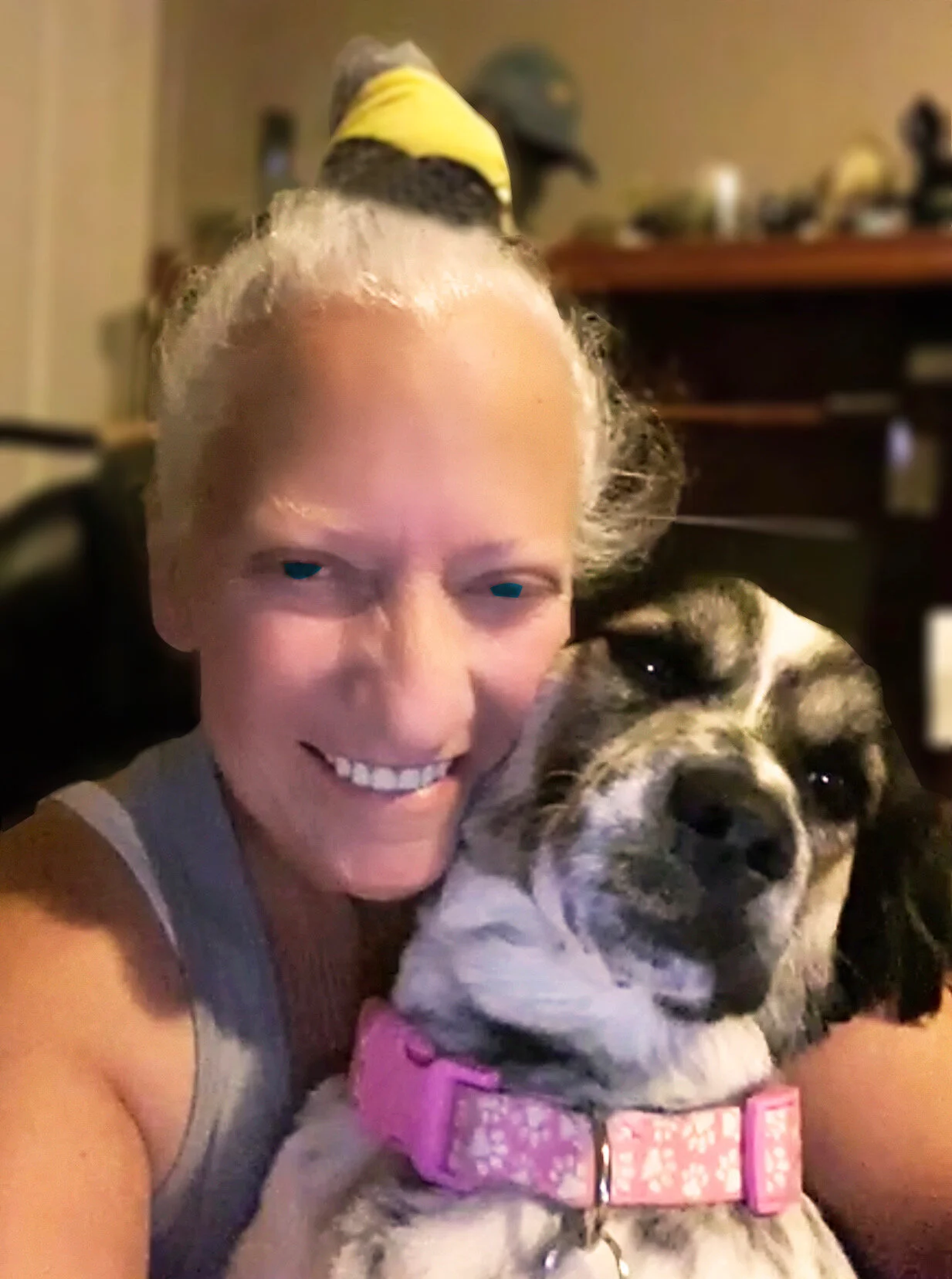Battered Justice: Brenda Clubine advocates for women imprisoned for killing abusive husbands
From her living room in a sunny, safe and quiet neighborhood surrounded by scenic desert landscapes and views of the Sandia Mountains, Brenda Clubine spends most of her days on ZOOM or her cellphone connecting with and advocating for women unjustly locked away in prison for defending themselves against their abusers.
For 26 years behind bars, and now free, Brenda has been the advocate and voice and ears of women who ended up in prison for life and many without the hope of parole because they weren’t allowed to bring into court evidence of their abuse. Brenda was sentenced to 16 years-to-life was, but released in 2008 when her sentence was reduced to involuntary manslaughter and she was given credit for her time served. She has been instrumental in recent California laws that allow these women to present that evidence and potentially be released from prison.
Following her own release from the California Institution for Women in Chino, CA in 2008, Brenda spent several years returning to the prison to attend the support group she started while behind bars more than two decades ago. Convicted Women Against Abuse, (CWAA), helps victims of domestic abuse like herself. She also runs Every 9 Seconds, a non-profit devoted to the prevention of domestic violence and is one of the key champions for Five Keys’ Home Free, a transitional housing program for newly-released convicted abuse survivors housed on Treasure Island, San Francisco.
“These are women who have endured unspeakable violence and painfully and unjustly ended up in prison because they weren’t allowed to bring in evidence of their abuse,” said Five Keys co-founder Sunny Schwartz.
Their ranks are on the rise.
Homicides by intimate partners are increasing, driven primarily by gun violence after almost four decades of decline, according to a recent study looking at gender and homicide.
The number of victims rose to 2,237 in 2017, a 19 percent increase from the 1,875 killed in 2014, said James Alan Fox, a criminologist and professor of criminal justice at Northeastern University and an author of the research. The majority of the victims in 2017 were women, a total of 1,527.
In California alone there are 5,900 women in state prisons. Many internal survivors have disclosed that 90% of women incarcerated are survivors of child and/or adult abuse.
A not-yet-published preliminary study suggests that 75% of women who are serving a life sentence is directly related to intimate partner violence.
Brenda, almost 60, knows firsthand that a little bit of compassion and structured support — and lots of zealous advocating — can go a very long way. She also knows the struggle of getting back on her feet after years in prison.
Facing life in prison without parole
Brenda spent 26 years in prison for killing her husband. For years, Brenda endured broken bones, skull fractures, and nights in hospitals. Her husband, a cop, had 11 restraining orders against him. But, after enduring never-ending beatings and emergency room visits, she says, it finally ended in a locked motel room where he told her to give him her wedding ring so that authorities wouldn’t be able to identify her body after he beat her to death. While he came after her, Brenda hit him on the head with a wine bottle where he died of his injuries as unbeknownst to anyone, he had an unusual thin skull, but nonetheless she was sentenced to 16 years to life, because volumes of evidence of his abuse were not allowed into evidence.
She knows the pain hundreds of women across the country still behind bars continue to endure as they hope that one day, too, they will get a fair day in court and be released to find a new lease on life at a place like Home Free.
“I will never forget,” she says. "I knew that because of what I went through, if I could save one person from going through what I went through it was worth it," she said.
Championing for change
Brenda, who today lives on a street ironically called Playful Meadows Drive in Rio Rancho, New Mexico, is passionate about supporting and lobbying for the release of women who have survived horrific abuse from their husbands and the court system that silenced their voices. With a no-nonsense demeanor, and despite chronic health challenges including a debilitating case of MS, Brenda advocates tirelessly.
She strongly believes the heartbreaking, complicated, tragic stories like hers and theirs need to be heard during parole hearings. States need to give women a fair chance to convey their innermost thoughts and feelings about the events that altered the course of their lives.
Brenda’s plight, along with the stories of other women in her CWAA support group, are featured in a documentary about incarcerated battered women called Sin by Silence.
The film's director/producer, Olivia Klaus, sent a copy of the documentary to California Assemblywoman Fiona Ma, chairwoman of the Select Committee on Domestic Violence. After seeing the film, Ma wrote legislation she called the Sin-by-Sin Silence Bills. One of the statutes allowed incarcerated victims of domestic violence to refile for a writ of habeas corpus.
Clubine's devotion to helping victims of domestic abuse is unwavering. After years of advocacy and exhaustive lobbying, she works with the leadership of Five Keys Home Free to free women from “death by prison” and create a place for them to call home when and if they are released and experiencing freedom for the first time in decades.
Currently, there are hundreds of these women awaiting the hope that their sentences will be commuted and slowly, some of them are getting out.
“Helping build Home Free and getting women safely there is a passion of my heart,” says Brenda. “I try to offer support, because there is a guilt no one understands and a heartache in taking the life of someone you loved so much but who did not love you in return. You grow up thinking you would have this perfect June Cleaver life and never imagined for a moment anything like this. I know my personal experience and knew there had to be something I could do. There has to be some way we can eventually break the cycle of domestic violence. I certainly will never stop trying. “
About Home Free
San Francisco’s nationally recognized restorative justice organization, Five Keys Schools and Programs, is leading Home Free, a new program which created a residential community in San Francisco and plans to open a second transitional housing site in Los Angeles offering access to life skills and survivor empowerment programs, as well as training and job placement, to criminalized survivors of domestic violence. The women of Home Free are formerly incarcerated domestic violence survivors who spent decades behind bars for simply defending their lives, or being at the scene of a crime under the coercion of their batterer. However, the unfair treatment continues as too many of these women are placed in inappropriate halfway homes, most often residential drug treatment programs, where their unique struggles and untreated trauma continue to go unaddressed.
Please support us at our Virtual Fundraiser on September 30, 2021.

